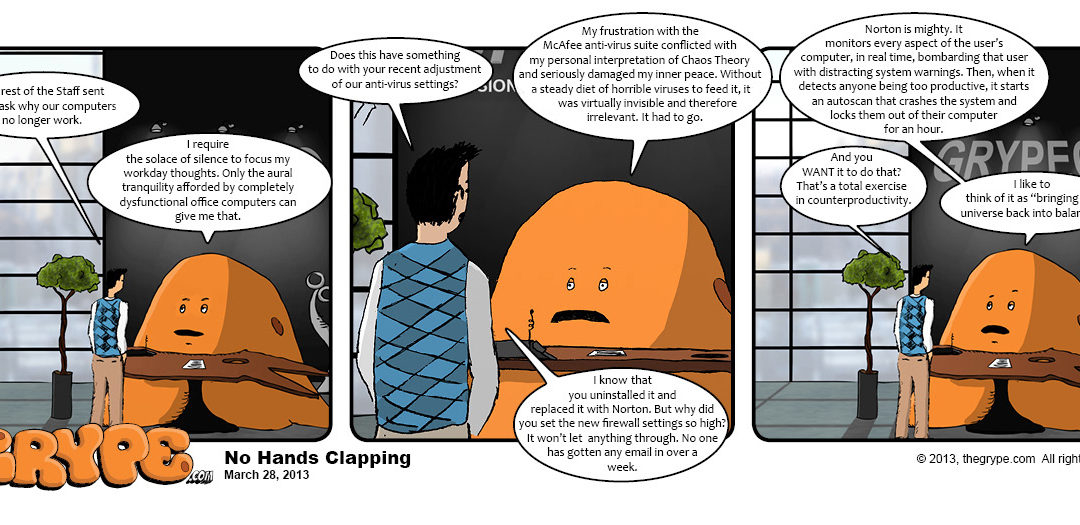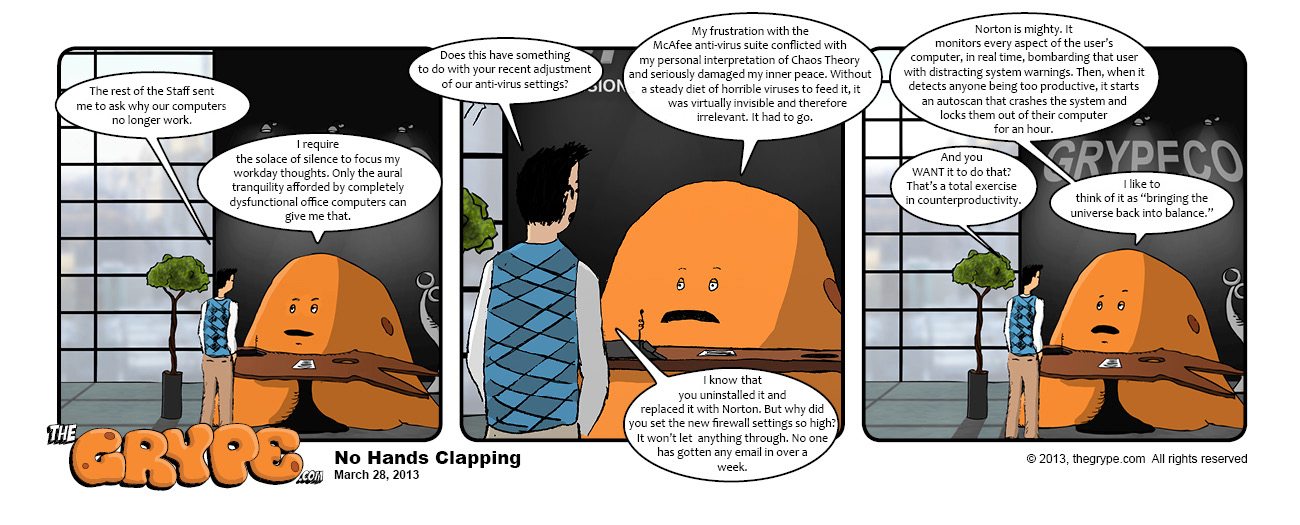One side-effect of the overabundance of middle management in America is a sub-class of employee we’ll call “parasitic taskmasters.” These individuals somehow manage to rise in the managerial ranks to a supervisory capacity, without acquiring THE SLIGHTEST IDEA how to actually DO the things by which their company produces its products or services.
This can happen in several ways. Most commonly, when the owner or operator of a company makes a habit of periodically “cleaning house” to rid itself of employees deemed “unproductive.” Those employees may be inept or incompetent— or they may have been over-worked or mistreated, which has soured their attitude in the workplace (often euphemistically called “burn out” in defiance of this simple rule: if you don’t want your workers to get burned out, DON’T BURN THEM OUT in the first place).
When the corporate broom decides (be it strategically or nonsensically) to sweep the employee rolls clean, the craft, experience, and talent of those fired workers gets swept away, too. Supervisory positions atop gutted departments get refilled with whoever survived the cut— no matter their skills or management acumen. Fresh employees are hired to replenish the ranks from below, often finding themselves under the direct control of a new manager less qualified for a supervisory position than the new hires themselves. If this happens a few times, the end result may be a department or entire company under the direct control of someone lacking ANY of the qualifications for that position.
That unqualified manager inherently understands the position of authority is a precarious one, and doesn’t want to lose their new-found position, accidental or not. So they have to compensate the only way they can: by squeezing more work out of their underlings at all cost. Lacking the talent or skill to be an artisan or a craftsman, instead they become a grueling taskmaster, parasitically wringing their own success from the sweat and hard work of those below them.
And if they keep producing, the powers above them won’t be too inclined to change things. In the boardroom, where the bottom line is king, myopically short-sighted owners aren’t usually too concerned with HOW their overseers impel subordinates. As long as the results are sufficiently profitable, there won’t be any imperative to address the situation.
The taskmaster, embarrassed by an inability to understand the job being done, will take steps to micro-manage the work force at every turn: endless reports, descriptions, and explanations will be demanded (so the taskmaster can appear knowledgeable if asked to explain what work is being done). The taskmaster takes little part in any actual work, unwilling to betray his own incompetence… but he will lurk in the background, ever ready to throw his hapless workers under the bus should a work lapse or other miscalculation need explaining. The parasitic taskmaster excels at covering his or her tracks.
Sometimes a parasitic taskmaster is too stupid to know it and really believes his rise in rank is indicative of talent. Such sad fools squander their careers stealing credit for the work of more talented people below them. All such situations eventually end badly, when the taskmaster promises— and fails to provide— undeliverable results, gets called onto the carpet by upper management, and is finally dismissed.
Usually by then the damage has already been done. Countless innocent employees will have been mistreated and driven off during the taskmaster’s reign, seriously harming the reputation of the company in question for years to come.


